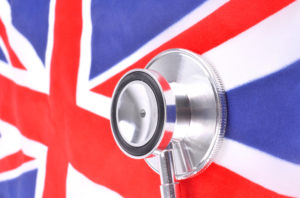 If your organization markets medical devices in the United Kingdom, you may have heard about the National Health Service (NHS) eProcurement program. Sometimes loosely referred to as the “U.K. UDI,” eProcurement shares some traits with FDA’s UDI program, but is quite different in many respects. In this post, we will give you a quick summary of the program and its requirements so you can determine whether your organization is likely to be affected.
If your organization markets medical devices in the United Kingdom, you may have heard about the National Health Service (NHS) eProcurement program. Sometimes loosely referred to as the “U.K. UDI,” eProcurement shares some traits with FDA’s UDI program, but is quite different in many respects. In this post, we will give you a quick summary of the program and its requirements so you can determine whether your organization is likely to be affected.
What is the eProcurement Program?
Like UDI, eProcurement is a government program requiring medical device manufacturers to electronically submit and maintain data records containing a large number of product attributes.
However, since NHS is not a regulatory agency (the FDA counterpart in the U.K. is the MHRA), eProcurement is not technically a regulatory requirement. Nevertheless, eProcurement is a requirement for any organization that wants to do business with an NHS care provider. For most device companies operating in the U.K., NHS is by far the largest customer in that market.
As a major buyer funded by taxpayers, NHS has a keen interest in standardizing procurement processes (and prices) across the country, regardless of where a patient may receive treatment. NHS eProcurement will allow the agency to make procurement processes faster and more efficient by leveraging master data, standardization and technology in the supply chain.
Who Will Need to Comply?
All organizations providing goods and services to an NHS trust will eventually be affected by eProcurement requirements as the program is implemented. However, NHS has chosen to apply eProcurement standards to the medical device industry first.
While we are following the industry trend in calling the program “U.K. NHS eProcurement,” it is important to understand that each country in the United Kingdom has its own health services agency. The current eProcurement requirements have been introduced by NHS England and only affect device organizations doing business with that agency. However, since England is the largest country in the U.K. by far, any organization marketing medical devices in the U.K. is very likely to be affected by NHS eProcurement. It is also likely that the health services of Scotland, Wales and Northern Ireland will implement the same or similar requirements in the future.
When Do the Requirements Take Effect?
Like UDI requirements in the U.S., eProcurement requirements are being phased in, with the highest risk device classes first. NHS has instituted separate deadlines for providing product and price data, with product data for each class required first, followed by price data for the same class one year later. Also, like UDI in the U.S., the deadline for data submission is at the end of September each year.
As you can see from the timeline above, the first submission deadline is September 30 2017, for Class III product data. This means that organizations selling Class III devices to NHS trusts should be working diligently on a compliance program. (Please note, the classification of your organization’s devices may be different from FDA’s device classification.)
Have a question or want to get started on a strategy for NHS eProcurement? Contact the Life Sciences team at Reed Tech today.
